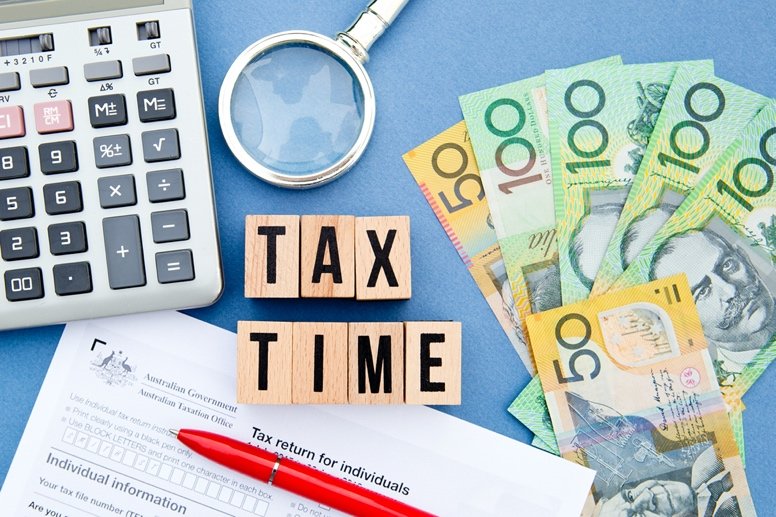YOUR TAX TIME BOOT CAMP
by Ross Greenwood
It might seem kind of obvious, but the most valuable piece of advice around tax time is this –
Declare ALL your income on your tax return. Nobody wants Tax Office troubles down the track!
Crucially, this includes almost all the special COVID-19 payments.
A good example is JobKeeper. If you received this allowance via your employer, it needs to go on your tax return. Your boss has to provide this information directly to the Tax Office, so you’ll access this information when you fill in your tax return.
The same goes for the JobSeeker allowance. This payment is also considered income by the ATO – so you’ll have to declare it.
But there is some good news!
If you accessed the early release of superannuation, up to $10,000 in the last financial year – this is tax free, so doesn’t need to go on your tax return.
Confused? I am not surprised. This has been a crazy year for many of us and that amounts to some extra headaches at tax time. Best thing to do? Bring in an expert to reduce the risk of trouble later.

So what IS considered income?
The whole notion of “income” can sometimes be confusing.. But the Tax Office is pretty clear – income includes: salary and wages (that’s obvious); tips, gratuities and other payments for your services (tips, did you hear that?); allowances for cars. Clothing and laundry; interest from bank accounts; dividends from investments; bonuses and overtime for employees.. a salespersons’ commission, pensions and rent.
What doesn’t get taxed?
There are some sources of income on which you don’t pay tax: including government pensions and payments and some education grants (but even double-check these).
Generally, you won’t have to pay tax on rewards; or one-off gifts ($50 in a card from your Nan for your birthday doesn’t count); lottery prizes; prizes in a game-show (there’s an incentive to get on the telly) and child support of spouse maintenance. But that’s about it. The rest is taxable in some way shape or form.
Tax and investment
A few extra things to look at here:
- Because interest rates are so low right now, there’s not much tax on savings because you’re getting so little back from them.
- Dividends are especially good because a fully franked dividend will come with a tax credit that reduces the amount of tax you pay on the income.
- Rental income on investment properties is generally managed by the amount of debt you took out to buy the property in the first place. In other words – when it comes to investment – people can manage how much income they receive and therefore the amount of tax they pay on that income. For many, this amounts to a deferral of tax – because if an asset is sold in the future for a profit, capital gains tax will be paid.
What’s the most important thing to know at tax time?
The most important in all this is to have a strong idea of what income is and to declare all of it.
The days of hiding cash under the bed – or even businesses dealing in a lot of cash, are pretty much over (the usage of cash has dropped to an all-time low) which also means the ability to hide or disguise income is becoming harder; and it is becoming easier for the Tax Office to track income.

Capital Gains tax – A top tip from Ross
Just a hint if you’re thinking of selling something – shares or an investment property – for a profit this year.
Stop, pause and look at your tax situation.
Capital Gains Tax is one of the friendliest taxes, because you choose when you sell. This means you also choose when you pay the tax. So if you sell assets when your income is lower, it also means your tax rate is lower, so you pay less tax.
Remember, from 2024-25 – just three years from now – the Government plans to cut taxes broadly. From that year, people will need to earn more than $200,000 a year before they pay more than 30 cents in the dollar tax.
Say right now you earn $100,000 a year – and make a $100,000 capital gain – capital gains tax is paid on half your profit at your marginal tax rate, in this case, this year, its 37 percent and you will pay $18,500 tax. But if you can hang on for three more years – and the tax rate for a person earning $100,000 drops to 30 cents in the dollar, you’d only pay $15,000 – a $3,500 saving.
The money saved with those tax cuts will be even bigger if you earn between $180,000 and $200,000 a year.
One reason Australians put so much into their family home is because of its capital gains tax-free status. Make a profit on your own home and you can upgrade time and time again – gaining wealth along the way.

Where else does capital gains tax apply?
Always be conscious that capital gains tax does apply to most things you can buy and sell for a profit: real estate, shares, cryptocurrency.
There are still some tricky things to navigate though: collectables for example. If you have a collection of stamps, coins, paintings, jewellery or antiques you may be subject to capital gains tax when you sell. The cut-off value here is $500 when you bought the collectable. So that’s good if you found a Cezanne at a local car-boot sale for $400 – not so good if you paid $400,000 for the same Cezanne at auction.
There are also things called personal use assets. These are things like boats, furniture and other household items. If any of these items cost you less than $10,000 – there’s no capital gains tax if you sell at a profit.
If you paid $500,000 for a beautiful wooden boat, and sold it for $700,000 – chances are you will be on the hook to pay capital gains tax on the difference.
Where DOESN’T capital gains tax apply?
For business, there’s one other group of assets that don’t accumulate capital gains tax: equipment that you have claimed depreciation on.
The reason is that you have probably used that piece of equipment to earn an income and the chances are that the more you use the piece of equipment, the less it is worth (hence the ability to depreciate its value for tax purposes).
But remember, capital gains tax is a brilliant tax, because you get to choose when you pay it, meaning you have the option to sell investments for a profit when your tax rate is at its lowest.
